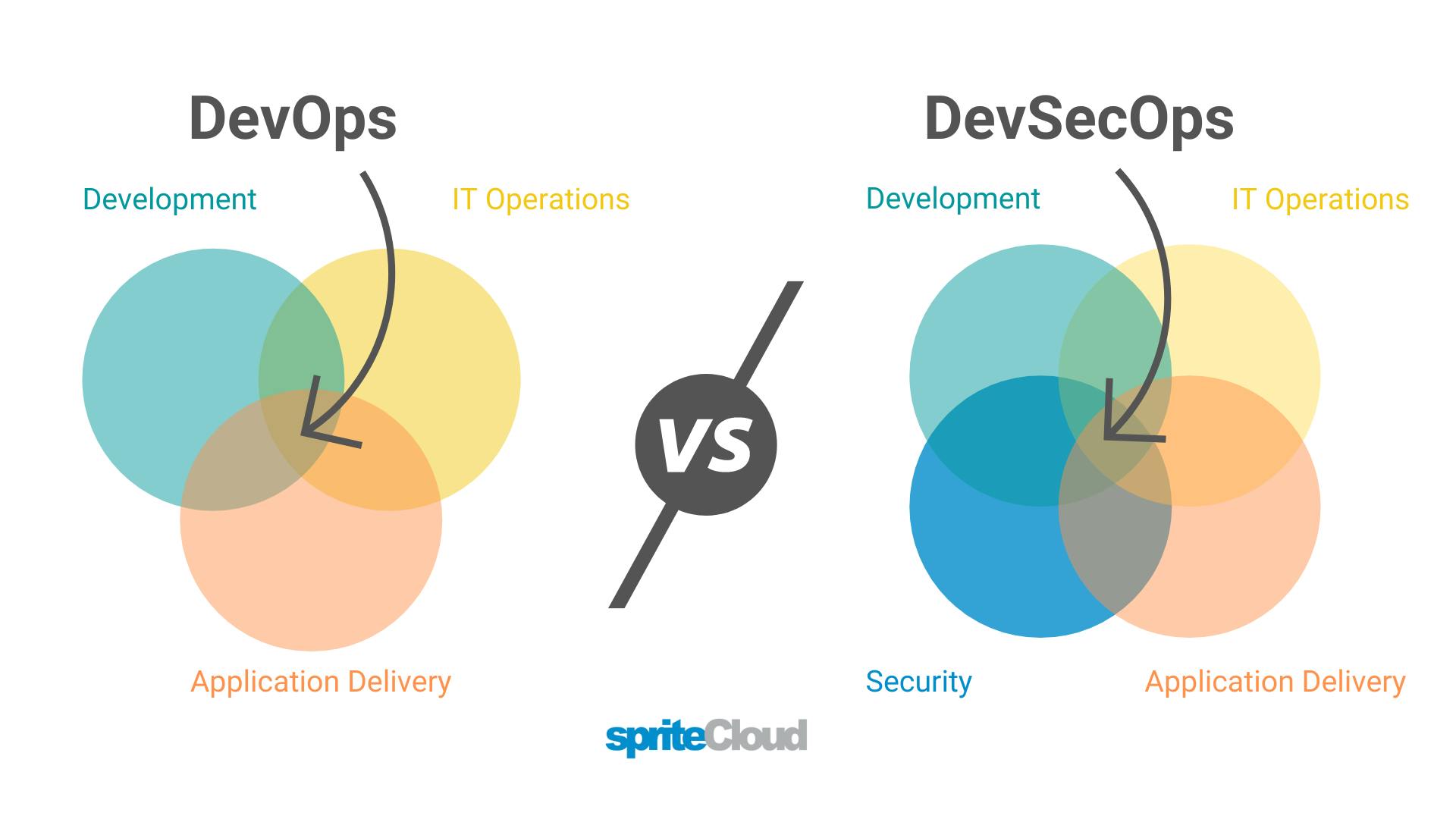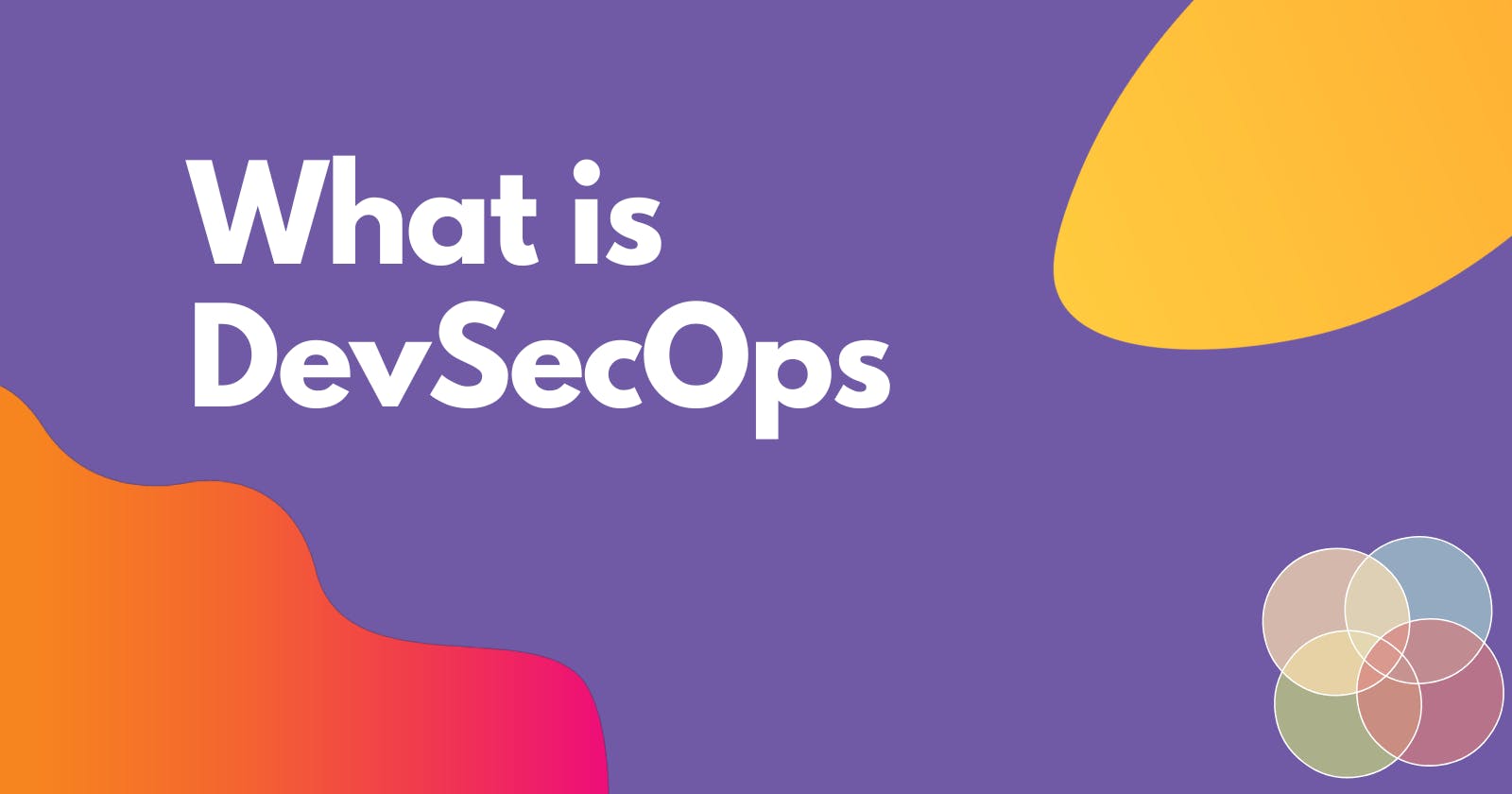Automated security refers to the use of technology to perform security tasks without the need for human intervention. This can include things like security software that monitors a network for threats and takes action to block them, or systems that use artificial intelligence to analyse security footage and identify unusual activity. Automated security systems are designed to make security processes more efficient and effective, and to help reduce the workload on security personnel.
A key component of all things DevSecOps is the ability to automate a lot of the tasks at hand when creating and delivering software, when we add security from the start it means we also need to consider the automation aspect of security.
what is DevSecOps?
DevSecOps for development, security, and operations automate the integration of security at every phase of the software development lifecycle(SDLC), from initial design through integration, testing, deployment, and software delivery.
DevSecOps is a software development approach that aims to bring together development, security, and operations teams to build and maintain secure software applications, which aim to deliver software updates and features more quickly and frequently.
DevSecOps aims to improve collaboration and communication between development, security, and operations teams, to create a more efficient and effective software development process.
Different Between DevSecOps and DevOps
While the two sound extremely similar, there are critical differences that will impact IT and business efficiency, as well as your ability to move forward with the best application development framework for your business. Teams that can distinguish between DevOps and DevSecOps are equipped to make key decisions that increase the efficiency of their app development pipeline. What’s more, it also helps teams make necessary changes to their current process in order to focus more on speed, agility, and security.
The goal of DevSecOps is to build security measures into the software development process so that security is an integral part of the software from the start, rather than an afterthought. This helps to reduce the risk of security vulnerabilities being introduced into the software and makes it easier to identify and fix any issues that do arise.
DevOps focuses on improving collaboration and communication between developers and operations staff to improve the speed, reliability, and quality of software releases, while DevSecOps focuses on integrating security practices into the software development process to reduce the risk of security vulnerabilities and improve the overall security of the software.

Automated Security
Automated security refers to the use of technology to perform security tasks without the need for human intervention. This can include things like security software that monitors a network for threats and takes action to block them, or systems that use artificial intelligence to analyse security footage and identify unusual activity. Automated security systems are designed to make security processes more efficient and effective, and to help reduce the workload on security personnel.
A key component of all things DevSecOps is the ability to automate a lot of the tasks at hand when creating and delivering software, when we add security from the start it means we also need to consider the automation aspect of security.
Security at Scale (Containers and Microservices)
We all know that Scaling and dynamic infrastructure have been enabled by Containerisation and microservices have changed the way that most organisations do business.
This is also why we must bring that automated security into our DevOps principles to ensure that specific container security guidelines are met.
What I mean by this is with cloud-native technologies we cannot only have static security policies. Our security model also must be dynamic with the workload in hand and how that is running.
Teams will need to include automated security to protect the overall environment and data, as well as continuous integration and continuous delivery processes.
Necessary Actions
Standardise and automate the environment: Each service should have the least privilege possible to minimize unauthorized connections and access.
Centralise user identity and access control capabilities: Tight access control and centralised authentication mechanisms are essential for securing microservices since authentication is initiated at multiple points.
Isolate containers running microservices from each other and the network: This includes both in-transit and at-rest data since both can represent high-value targets for attackers.
Encrypt data between apps and services: A container orchestration platform with integrated security features helps minimize the chance of unauthorized access.
Introduce secure API gateways: Secure APIs increase authorization and routing visibility. By reducing exposed APIs, organizations can reduce surfaces of attacks
Differences between cybersecurity and DevSecOps
Cybersecurity is the practice of protecting computer systems and networks from digital attacks, theft, and damage. It involves identifying and addressing vulnerabilities, implementing security measures, and monitoring systems for threats.
DevSecOps, on the other hand, is a combination of development, security, and operations practices. It is a philosophy that aims to integrate security into the development process, rather than treating it as a separate step. This involves collaboration between development, security, and operations teams throughout the entire software development lifecycle (SDLC).
Focus: Cybersecurity is primarily focused on protecting systems from external threats, while DevSecOps focuses on integrating security into the development process.
Scope: Cybersecurity covers a wider range of topics, including network security, data security, application security, and more. DevSecOps, on the other hand, is specifically focused on improving the security of software development and deployment.
Approach: Cybersecurity typically involves implementing security measures after the development process is complete, while DevSecOps involves integrating security into the development process from the start.
Collaboration: Cybersecurity often involves collaboration between IT and security teams, while DevSecOps involves collaboration between development, security, and operations teams.
THE END
Thank You for reading this blog and have a nice day.
Currently seeking #cloud #devops job opportunities. Hands-on experience in #microservices, #containerization, & #loadbalancing. Post-grad student, certified in #AzureFundamentals. Open to remote work. Let's work together to push the boundaries of technology!

